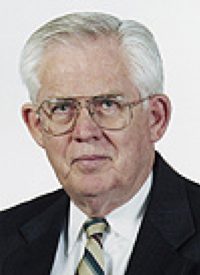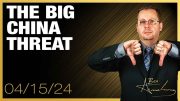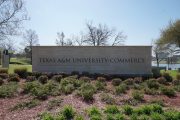
The death of William Niskanen (left), chairman of the Cato Institute, on October 26, 2011, should have been noted and his life’s work honored quietly by his friends and Cato supporters, including especially the Koch brothers, Charles and David. Instead, his death set in motion events that are likely to affect the Cato Institute, and the libertarian movement itself, significantly.
Originally known as “The Charles Koch Foundation, Inc.” the Cato Institute was founded as a Kansas non-profit corporation in December, 1974, with the initial funding from Charles Koch of Koch Industries, Inc. In 1977 the shareholders signed an agreement that, upon the death of a shareholder, his interest would first be offered to Cato to purchase or, if Cato refused to buy it, then it would be offered to the other shareholders. In 1985 the shareholder agreement was revised and signed by the four shareholders who included Charles Koch, Cato president Ed Crane, George Pearson, and Niskanen. In 1991 David Koch purchased an equal interest. In 2008 Pearson sold his shares back to Cato, leaving the remaining four: Koch brothers Charles and David, Ed Crane, and Niskanen, each with equal shares and equal interests in Cato.
When Niskanen died the Koch brothers expected that his widow would “tender” his shares either to Cato or to them, which would make them controlling shareholders in Cato. A board meeting scheduled for December 1st was postponed to March 1st to discuss and resolve the matter privately and that would have been the end of the matter. But when the shares weren’t offered, the brothers sued Cato and Niskanen’s widow, Kathryn Washburn, seeking a “declaratory judgment,” effectively asking the court to confirm the agreement and force the release of the contested shares. The suit was filed the day before the March 1st board meeting and the matter became public.
It didn’t take long for those opposed to the Kochs’ commitment to free markets and limited government to seize the opportunity to make the internecine squabble public. The Washington Post headlined
The billionaire Koch brothers, whose outsized political spending has become an issue in the 2012 elections, are attempting to take control of a prominent Washington think tank in a move that would expand their influence in conservative politics…
Cato President Ed Crane blasted the lawsuit … as an attempted “hostile takeover” of [Cato]…
Crane minced no words in his public statement: “Mr. Koch’s actions in Kansas court yesterday represent an effort by him to transform Cato from an independent, nonpartisan research organization into a political entity that might better support his partisan agenda.”
The battle was joined. Charles Koch said he and his brother David only wanted to “uphold” the shareholder agreement to “ensure that Cato stays true to the fundamental principles of individual liberty, free markets and peace into the future…”
One interested observer, Jonathan Adler, who interned at Cato many years ago and currently serves on the board of the Cato Supreme Court Review, grieved over the public display of disaffection:
Whatever the merits of the Kochs’ claim, I cannot understand how their actions can, in any way, advance the cause of individual liberty to which they’ve devoted substantial sums and personal efforts over the years. Even assuming their legal claim has merit, a legal victory will permanently injure the Cato Institute’s reputation…
If the Koch brothers themselves represent the controlling majority of an organization’s board, that organization is, by definition, a Koch-run enterprise. Progressive activists and journalists will have a field day with this. They will forevermore characterize the Cato Institute as “Koch-controlled” — and, as a legal matter, they will be correct. No efforts to re-establish the Institute’s credibility or independence will overcome this fact…
In short, they will have destroyed the Cato Institute to save it.
Another Cato scholar, Ilya Somin, noted that while many of “the litany of charges against the Kochs [made by their opponents] is unfounded, based on a combination of distortions and outright factual errors, in this case they have made a mistake…not every well-intentioned action is wise, and this one isn’t.”
A week later Charles tried to put the best face on the matter:
We did not want to address this shareholder issue at this time. Although our legal filing has accelerated media coverage of this issue, this was not our desire. For months we made every effort to resolve, avoid, or delay this issue. We proposed a standstill agreement to delay for one year or longer any discussion on the shareholders agreement. We asked to delay any shareholders meeting, which would have left the pre-March 1 board of directors in place during this period. We proposed third-party mediation. We proposed alternative corporate structures. We made every effort to avoid this dispute — finally requesting just an additional four days to negotiate a potential resolution — but all of our proposals were rejected…
From there the battle devolved into a “he said, he said” conflict, causing one commentator to note: “Libertarians say it’s like watching dear friends in an ugly divorce.”
In commenting on where this is likely to go in the future, Matt Welch, the editor-in-chief of Reason magazine, where David Koch sits as a board member, said: “I’ve got to think that there’ll be court action for the next year or two, and then we’re probably going to see a different Cato emerge.”
As if the libertarian movement didn’t have enough challenges, this legal squabble comes at a bad time, draining vital time, attention and resources away from the freedom fight.



